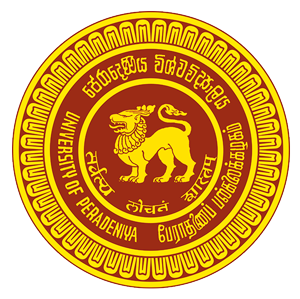In many parts of the world, irrigation is a necessity to deal with water scarcity and seasonal water deficits for agriculture. As limited rainfall and altering precipitation patterns negatively affect crop growth and quality, a stable supply of agricultural products is only possible by means of irrigation, particularly in arid and semi-arid regions. Facing these challenges, dryland societies developed strategies to secure water supply since ancient times.
A system used in Sri Lanka is one of the oldest historically recorded worldwide. In Sri Lanka’s North central Dry Zone rice cultivation has been based on traditional water harvesting methods, the so called tank cascade systems, since 2000 years: During two monsoonal periods rainfall and surface-runoff are stored in man-made reservoirs, so called tanks or wewas, and are used for irrigation during the dry period. Besides irrigation the stored water is used for domestic purposes, desiccated tank beds serve as pasture for the cattle and deposited sediments are used as raw material for brick production. Thus, the tanks have characterised the cultural landscape of north central Sri Lanka since two millenia and are deeply inscribed into the societies utilizing them.
About tank cascade systems →In the coming decades Sri Lanka’s society will face socio-economic and environmental transitions. Urbanization processes will lead to a transformation of the present day mainly rural society into a more urban society. According to the climate change scenarios of the Intergovernmental Panel on Climate Change (IPCC), Sri Lanka will be affected by rising temperatures and has to expect a higher variability of monsoon rainfall and an increase in extreme climate events such as floods or droughts. Both developments will impact the functionality and management of the water harvesting systems as well as the traditional knowledge about the water harvesting structures, yet to an unknown extent.
Addressing these issues an interdisciplinary team of researchers from physical geography, archaeology and sociology investigated the implementation and development of the tank cascade systems in the Hinterland of Anuradhapura and Polonnaruwa. In the respective provinces, the physical systems of water management and the traditional governance structures were recorded and analyzed. Further, the impacts of climate, land use, and water management practices on water balance and sediment budget were assessed.
The project´s accomplishments provide important information for the preservation and a future sustainable development of the ancient water harvesting system in Sri Lanka addressing climate change and socio-economic challenges.
Research methodology of the project “Tanks in the Dry Zone of Sri Lanka" →The research project “Tanks in the Dry Zone of Sri Lanka” coordinated by Prof. Dr. Wiebke Bebermeier and Prof. Dr. Brigitta Schütt of Freie Universität Berlin was carried out in cooperation with the Department of Archaeology and Department of Geology at the University of Peradeniya, and the Disaster Research Unit of Freie Universität Berlin. The project was funded by the VW Foundation (Project-ID: 88 578).
The research findings of this international collaboration are now being summarized on this website for a wide range of recipients.
The project team
Institute of Geographical Sciences
Wiebke Bebermeier, Brigitta Schütt, Ingo Middelhaufe, Nuwan Abeywardana, Julia Meister,
Thusitha Wagalawatta, Teresa Heidemann, Henry Schubert, Anton Eggebrecht, Robin Saase, Lisa Huttenlocher, Robert Rettig, Tobias Saul
Disaster Research Unit (DRU)
Martin Voss, Theresa Zimmermann, Maija Susarina, Emily Knothe

Hochschule für Technik und Wirtschaft Berlin
Kay Kohlmeyer, Thomas Schenk
 |
University of Peradeniya |
Departement of Geology
Prof. Dr. H.M.T.G.A. Pitawala
Prof. Dr. H.A. Dharmagundawardana
Departement of Archaeology
Prof. Dr. R. M. M. Chandaratne

